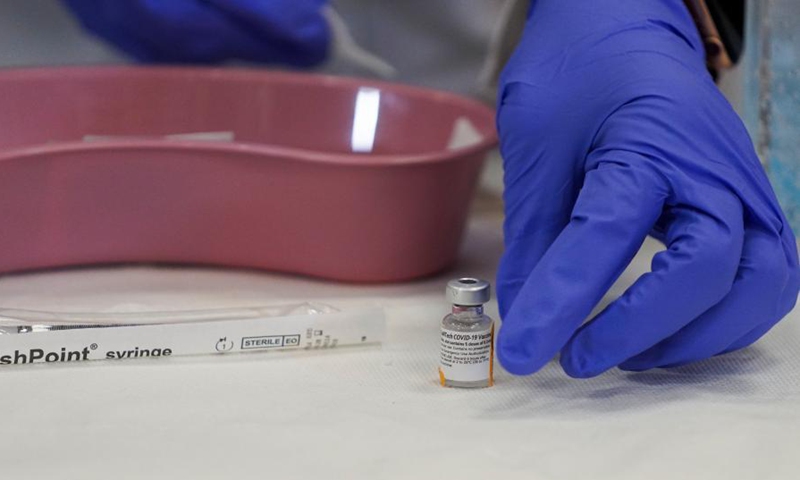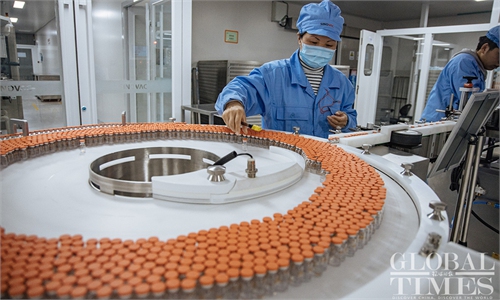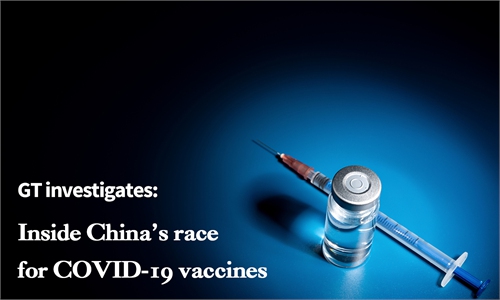China is the world's largest vaccine producer in a market expected to reach $17.75 billion by 2030: industry forum

A healthcare worker prepares the administration of the COVID-19 vaccine at Long Island Jewish Medical Center in New York, the United States, on Dec. 14, 2020. Photo: Xinhua
A forum on vaccine industry marketing was held on Saturday in Zhengzhou, Central China's Henan Province. Organized by the China Association for Vaccines, the forum attracted hundreds of enterprises, analysts, lawyers and scholars, who shared the latest information on the vaccine industry.
China might approve vaccine candidates made by Sinopharm and Sinovac before the end of the year, or could grant conditional approval for the vaccines to be marketed, an industry insider told the Global Times on Saturday, who asked not to be named.
A representative of Chinese vaccine developer CanSino Biologics said during the forum its COVID-19 vaccine uses a platform of non-replicating viral vector, and explained the differences between coronavirus vaccines.
"It took a week for China to decode the full genome sequence of the novel coronavirus and send it to the United Nations," the representative of CanSino Biologics told the forum, adding that China's current vaccine development is in the first echelon in the world.
CanSino Biologics said it usually takes 15 years to develop a vaccine, while the urgency of COVID-19 vaccine has greatly shortened the development time, which is a "breakthrough for the global vaccine industry."
As of Wednesday, there were 212 COVID-19 vaccines under development worldwide. Among them, 56 have entered clinical trials, and 14 have entered Phase III clinical trials. Six of them are from China, according to the latest report released by the WHO.
Chinese-developed vaccines that have entered phase III trial differ from each other. Fosun Pharma co-developed vaccine used mRNA with Pfizer and BioNTech. Sinopharm and Sinovac used inactivated virus and Anhui Zhifei Longcom Biopharmaceutical used protein subunit.
Analysts and research fellows from enterprises shared opinions on the safety of each type, with some saying that mRNA may cause overloading of the body's immune response. They pointed to four people in the US who developed facial paralysis after receiving the Pfizer COVID-19 vaccine.
While industry practitioners said that vaccines of inactivated virus should be safer than mRNA vaccines, some others say the protein subunit could be the safest, but the world will have to wait and see.
To reach 70 percent vaccination rate, the world needs 10 billion doses of COVID-19 vaccines. China is the world's largest vaccine producer in a market expected to reach 116.1 billion yuan ($17.75 billion) by 2030, said Lin Jing from MSD pharmaceuticals at the forum on Saturday.
Industry insiders also tracked the trend on the Chinese market.
"Judging from the number of vaccine approvals in China in recent years, the number of private enterprises is increasing," Tao Lina, a Shanghai-based expert on vaccines, said on the forum.


